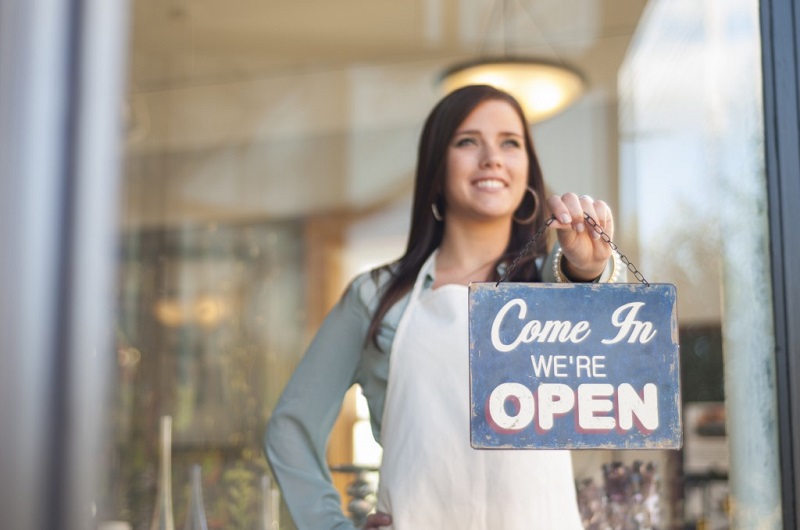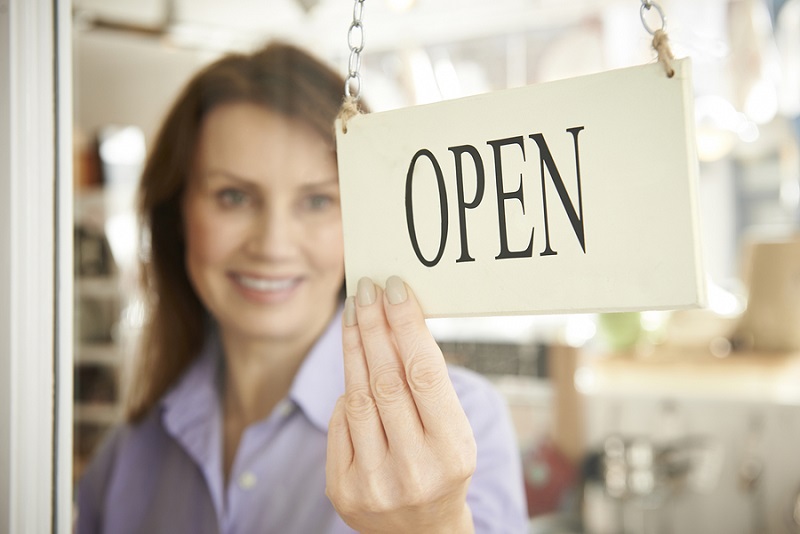On the last day before the opening of a clothing store owner appeared. He has already managed to approve the design, say “yes” with respect to commercial equipment and even personally present in the selection range. In thought he walked four hundred square meters of retail space. Everything was good, but something was missing … “A staff ?!” – he cried in horror. Do not laugh, this is a true story! What do not forget to open your store? Below is a checklist, developed with the help of three directors of shops, wished to remain anonymous …
1) Selection of the store idea: The most pressing issue. Do I need to market what you are going to sell? What are the possible competitors in their chosen field? Large, medium or small shop? Think about what will shape the organization of trade – over the counter, self-service or mixed? One store or chain?
2) Identification of potential buyers: Who will come to your store? Are you sure that they are interested in your products? That’s what you think, or potential customers? And if they lied? Be sure to talk with representatives of your target audience in advance. And find out who lives in the neighborhood.
3) Range: What is the range of products will be on your shelves? What does it sell competitors and demand? Will you sell related goods? Will you allocate space for tenants, a branch of the bank or exchange office, its own mini-production?
4) Financial calculations: The business plan should be drafted as carefully as possible. Most of the cost amount to contingencies. Therefore, multiply your calculations into two. Do you have enough money to bring your idea to life? It is better to immediately arrange the financial priorities than to lay off staff, as no money to pay him a salary.
5) Legal aspects: You have compiled a list of the necessary documents? Did you forget to obtain a license? A basic administrative document? A full package of initial permits have prepared? All documentation must be certified and approved. Do not forget that almost always documented delayed. Try to fulfill all the requirements, guidelines and regulations to the fullest extent – it will reduce the number of occasions for testing and fault-finding.

6) The name of the store: Who came up with the name for your store? And why did you decide that this is a good name? And whether there is no possibility to alter it into something dissonant? And they think on this subject potential buyers? Ask them to shop with whatever name they would have come with pleasure.
7) Choosing a location: The store should be located so that it is possible to be easily accessible. Also consider: Does your store inhabitants of the region need? Will there be for him to go from other areas? And who is it?
8) Design: Prior to the selection of premises should consider the appearance of the store and interior design. Imagine your Future Shop: How it looks from the outside and inside. Do not forget that phrases such as “I want to make it all nice” everyone perceives differently, especially designers. Therefore, put them specific tasks. And make sure they have understood. A document on outdoor advertising, which is for a sign, and other booths and panels, have you received?
9) Selection of the room: You will build themselves, to buy or rent an area? In any case, the room must be suitable in size and layout. When you select should be aware of the technical conditions of the connection of external communications, such as systems of electricity, water, heating and cooling, ventilation and air conditioning, telephone and Internet line, security system and others. Decide whether you need an internal service entrance with the possibility entrance of trucks. What should be the storeroom? Are they conveniently located? Do they fit in everything you want to sell? Do not forget – parking, well maintained magazine space will create a good impression about your store.
You may also like to read another article on heygom: What are the best sales techniques in the store?
10) Equipment: The important point is the timely selection and ordering of catering equipment from specialized companies. Whether it meets the specificity and the level of your store? Be sure to consider your store area. You have where to put the purchased equipment so that between them it was convenient to go to buyers? A color palette of equipment and interior design is the same? Cash Equipment affects the permeability of the store. Take care of your modernity, comfort for the cashier and the required amount.
11) Suppliers: Than you are guided in selecting a supplier? The focus is on price, product quality, location, provider performance of the firm (commitment, punctuality), delivery schedule. You will work with one or more? Long-term relationships with stable suppliers will save not only money but also your nerves. Think about support from the vendor in the form of training on the product for merchants, POS-materials, or advertising. It is necessary to carry out an analysis of suppliers who are ready to fulfill your requirements.
12) Logistics and tracking systems of goods: Think about the amount and frequency of deliveries. Depending on the distance of the supplier and the supply volume should be chosen mode of transport. Do not forget to insure the goods transported. Take care about the correct placement of goods in the warehouse. On improper transportation, unloading and storage of goods shops lose a lot of money. It is better to mark every item is already in stock. On the one hand, it allows to trace the inner path of the goods, to facilitate the accounting system.

13) The internal layout and display of goods: Are you familiar with the rules of merchandising? Or posted goods as had? You most convenient to consider the product and take it off the shelves? And where are the price tags? Do not forget that they must be legible and located in close proximity to the goods. Placement of advertising information should not overlap the review of other goods.
14) Recruitment: Staff – people, on which depend the turnover and profit of your store. Staff should be planned well in advance and not be limited to a set of “an acquaintance”. How many people should work? In one shift or two? That regulates their behavior at work? A special form of clothing whether in your store introduced for employees? Whether you need a simple or hiring manager should find this personnel director?
15) Training: Pre-training employees will make it possible initially to create a cohesive team, to lay the seed of the corporate culture and acquire the necessary work skills and knowledge. Your salespeople know how to sell? Why do you think so? And managers are able to manage? Whether they will have recourse to you every minute of the issues? Write a list of what needs to know and be able to your seller, and think about what list it is necessary to teach.
16) Advertising: Information support will attract more buyers. How are you going to open a shop? It will show a special event or sale at a reduced price? And how will you attract customers after the store will be open? Try to keep any event held in the store, it was an occasion and information reported in the media.
17) Tenants of vacant space: Despite the fact that renting your space makes money, you need to carefully choose neighbors. Do not let the style or image tenants destroyed the integrity of the store idea. For example, if you sell sporting goods, and are advocating a healthy lifestyle – avoid proximity with the tobacco and alcohol products.
18) Security: How do you protect your store? Various anti-theft equipment can be combined depending on the budget and expediency. The introduction of the goods anti-theft protection system will prevent the removal of unpaid goods from the store. There are also video surveillance systems, special mirrors and surveillance systems and analysis of teller operations.
So ask yourself the last question: Do not forget (and) I anything, absorbed the hassle of opening the store?
With the answers to these questions, we are preparing the foundations for the further successful development of our store. The stronger the foundation, the more floors can be built, and the longer it will stand our building. Solid foundation shop – 50% of its future success.

